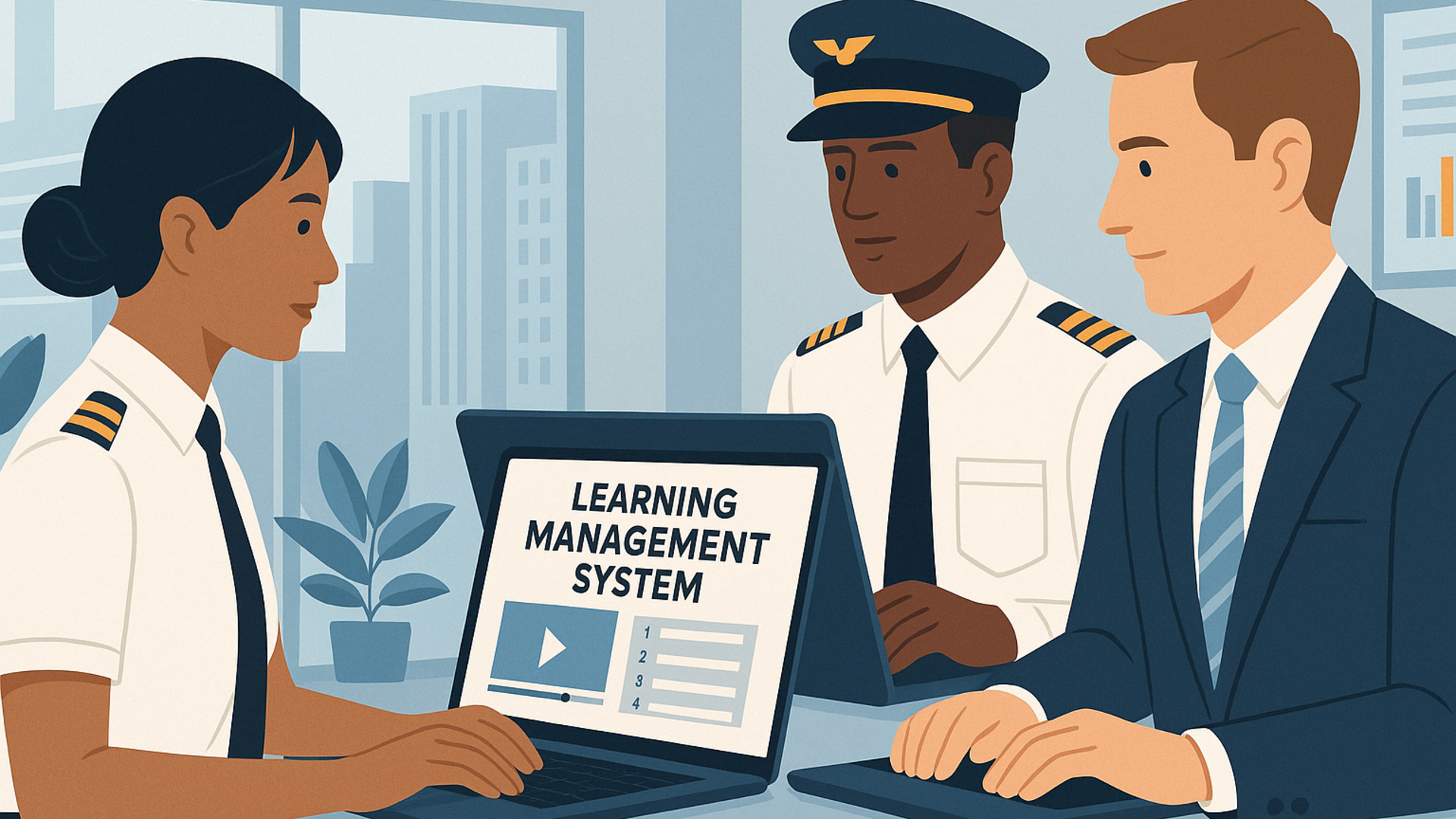LMS for Aviation Training: Preparing Crew for Real-World Scenarios
Updated on
Published on

Good training keeps flights safe in the sky. When a crew knows how to handle anything that comes their way, everyone stays safer, and work gets done much more smoothly. This is where a Learning Management System (LMS) becomes vital. An LMS offers a structured way to deliver, track, and assess training programs. It teaches flight crews how to react fast when a sudden storm hits or an engine acts up mid-flight.

Understanding the Role of an LMS
An LMS for aviation training is a digital platform that manages educational content. Aviation professionals can access all their essential training right here. This system covers safety steps, emergency drills, and the specific technical abilities needed for flight.
By centralizing resources, an LMS makes it easier to update and distribute information. Supplying the team with up-to-the-minute learning tools means everyone on board remains knowledgeable and fully prepared for any scenario.
Enhancing Training Effectiveness
An LMS significantly enhances traditional training methods. Hands-on learning comes alive through simulations that act out real-life situations. Think of these tools as a practice field where you can try out different moves and get good at them, knowing there's no real danger.
Crew members feel more confident and become much better at deciding what to do. These abilities are essential when a real emergency strikes.
Customization and Personalization
Training needs can vary greatly in aviation. An LMS allows for customization to suit different roles and responsibilities. The platform can adapt to specific requirements, whether it is used for training a pilot on advanced navigation systems or a flight attendant on customer service protocols. We craft learning plans.
They pinpoint what you excel at and where you need practice. Every person on the team gets custom lessons. This way, they learn exactly what's needed to perform their job duties perfectly.
Tracking Progress and Performance
One of the key advantages of an LMS is its ability to track progress. Teachers watch how students are doing to pinpoint where they might struggle and need extra help. Performance data, like speed or reps, shows us if a workout needs tweaking. We then know if we should add more weight or change the routine. We can easily spot our top performers this way. Then, we offer them chances to learn more and advance their careers right inside the company.
Cost-Effectiveness and Efficiency
Implementing an LMS can lead to significant cost savings. Traditional training often requires physical resources, travel, and accommodations. An LMS reduces these expenses by delivering content online. Crew members gain control over their schedules here.
They can complete training exactly when it works for them. Choose when to learn so it never clashes with your daily operations.
Ensuring Compliance and Standardization
Aviation is a highly regulated field. Ensuring compliance with industry standards and regulations is non-negotiable. An LMS helps maintain compliance by offering standardized training programs.

This system automatically refreshes training materials whenever new rules come out. That way, everyone on staff stays completely current on the latest demands. When you're consistent, you ensure that everyone stays safe and operations keep going.
Adapting to Technological Advancements
Aviation technology is constantly evolving. An LMS makes it simple to plug the latest technology directly into your teaching materials. With new information constantly added, our flight and ground crews stay on top of things.
They can confidently operate and maintain the most current aircraft and their sophisticated gear. Remaining flexible and ready to adjust is a fundamental requirement for any entity aspiring to outperform its competitors within this dynamic commercial environment.
Facilitating Communication and Collaboration
Effective communication is crucial in aviation. An LMS can foster collaboration among crew members by providing forums and discussion boards. You can share your thoughts and ask anything that comes to mind.
This kind of interaction makes learning really stick. A team that clicks? An LMS makes it happen by getting everyone to work together, ready for any hurdle.
Boosting Engagement and Motivation
Engaging content is key to successful training. An LMS can incorporate multimedia elements such as videos, quizzes, and interactive exercises. These parts really grab your eye and turn learning into a blast. Giving your crew digital badges or a live scoreboard motivates them to complete training and achieve optimal performance.
Conclusion
Plain and simple, an LMS is a must-have for modern flight schools. You'll see training improve, rules followed, and the system stay fresh with all the latest tech. Imagine crew members learning exactly what they need, truly ready for real-life challenges. A learning system doesn't just make flying safer; it really speeds up how smoothly everything operates in the air.









